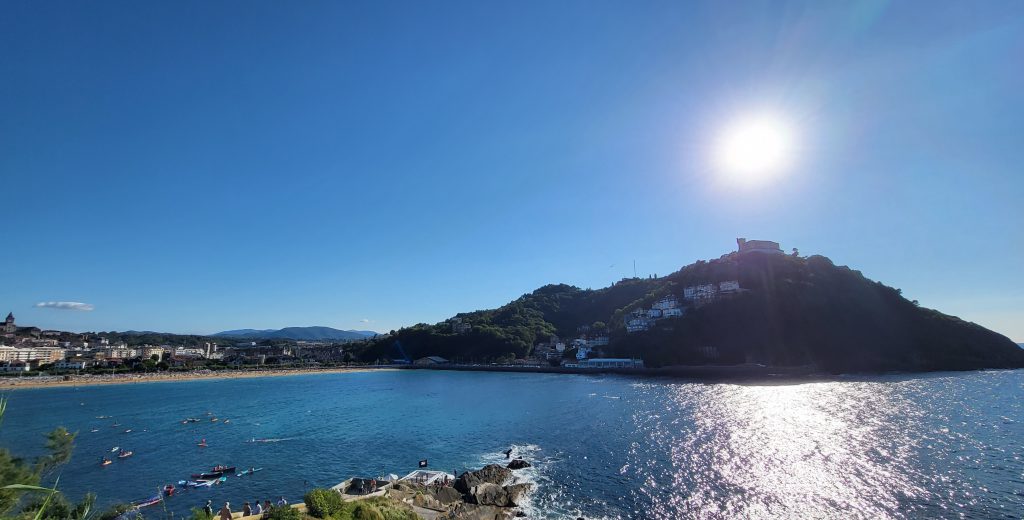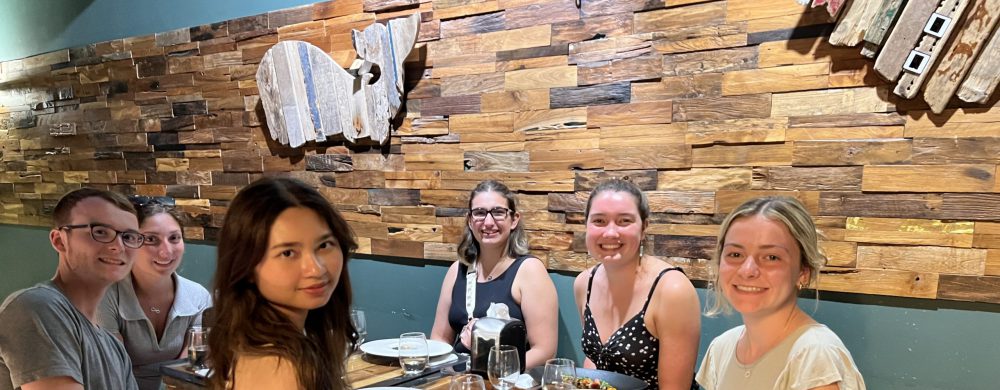Euskara is the language of the Basque people, and it is older than nearly any other language in Europe. In fact, many historians are of the opinion that it is a “pre-Indo-European” language and could very well be the oldest living language on the continent. The language of the Basque Country predates the French and Spanish dialects that surround it by thousands of years, and as far as linguists and anthropology have discerned it contains no significant connection to any other language on the planet. It was for these reasons that I found it quite interesting that our class on the Basque language was led by a Scottish instructor. It was made evident, however, that Stuart’s 30+ year journey studying, practicing, and teaching the language made him more than qualified to instruct us.
In the class we learned basic greetings for every part of the day and some simple phrases to make navigating the shops and bars of San Sebastian just a bit smoother as we interact with the locals. By the end of the session, we were able to pair up and have mock conversations ordering in bars. The language is far from easy to learn, but being taught how to pronounce the unusual phenomes within the language and stringing sentences together brought about a certain sense of empowerment as we stoked a lingual connection with our adopted home.
Engaging with the language of our new home allowed us an opportunity to peer into the history of the county and the role that their ancestral tongue has taken in the story of the region. Prof Zabalbeascoa detailed the persecution of the Basques during the Franco years and the rise of ETA, and Stuart was able to fill in the details of the story based on his firsthand experiences living through years of instability in the country. We were told the story of one girl and her mother, who had been forced to move from the Basque country to one of the most nationalist cities in the nation. In the grocery store, when the young girl used the Basque word for apple, “sagarra,” heads turned. Her mother was forced to respond, “Si, agarra mi mano,” and take her by the hand in order to cover up the use of their native language.
The tragic reality of the cultural oppression which has taken place in the Basque region is harrowing, and it makes engaging with the language all the more important. As students adopting San Sebastian as our home for only a short period of time, it is vital that we do everything that we can to soak up the culture and history of the region, and it is impossible to do that without understanding at least some of the language which creates such a large distinction between the Basque country and its neighbors.
Unfortunately, because of the timing of this session, we have little time now to practice our Basque with native speakers in their native land. This does not mean, however, that the class was in any way wasted. As we sat in our “classroom” on the side of the Isla de Santa Clara, we looked out at the place which had become our home over the past two and a half weeks. From that vantage place we could see a number of places in which we had spent time. The theme park we visited towering high above on Monte Igueldo, Chillida’s “Combs of the Wind” along the foot of the mountain, and the waves crashing on the shore at Ondarretta. Although we had already been living in San Sebastian for weeks and had explored much of what it has to offer, we were able to see it in a brand-new light during this class. As we listened to the sounds of the language and learned about the ways that the culture has changed throughout history, we were able to see that San Sebastian, and the Basque country as a whole, has much more brewing beneath the surface than one would think.

Scratching away the veneer of the beautiful beaches and the mountains marching off into the distance, we were able to consider the deep wounds that the people of this land nurse and understand that the strength of the Basque people is even more beautiful than the landscape. Discussing the manner in which reconstruction occurred in the post-Franco era and the “Pact of Forgetting” opened our eyes to the fact that many people today live with the memory of a world against them. The Basque people are not long removed from a period of time in which they were oppressed and slaughtered, but still they stand proud. History has ensured that the Basques are no strangers to violence, and it has sadly become an integral facet of their story. As Professor Zabalbeascoa told us during our class, “the problem with violence is that it become the primary form of conversation.” This was certainly true in the Basque country, where the people were both victim and perpetrator for many years. Euskara allows the people of the Basque country to change that conversation, however, and focus on preserving themselves and their legacy. Learning Basque with Stuart gave us an opportunity to play a small part in that conversation and preservation even as our trip comes to a close and we make our way home, because we will forever be connected to this place through its language.
